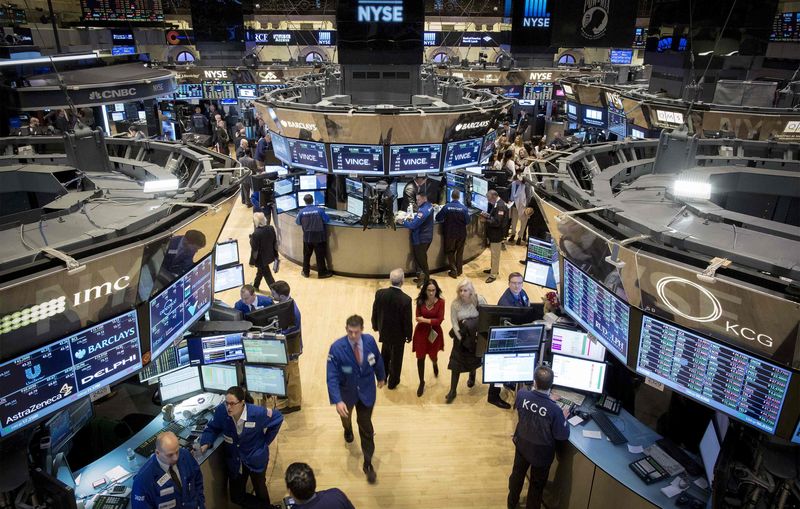By Saqib Iqbal Ahmed
NEW YORK (Reuters) - The U.S. stock market has been a bumpier place for the last couple of months, but you would not know it to look at the activity in trading VIX options.
Even though the CBOE Volatility Index (VIX), the market's favoured index of Wall Street anxiety, has traded higher lately than most of the last two years, there has been a significant drop in trading volume and open interest in VIX call options over the last three months.
Frequent but smaller dips as opposed to one big crash in the stock market have led to less willingness on the part of investors to hold hedge positions. Some investors moving away from stocks and into bonds, currency and commodities may also have lesser need to hedge stocks.
Open interest in VIX calls has dropped sharply over the last three months and at the end of January was at a little over 2.5 million contracts, about the lowest level since January 2012.
"Overall people are hedging less," said Scott Maidel, an equity-derivatives portfolio manager in Seattle at Russell Investments.
There are a number of reasons for this. One relates to the recent pattern in equities. More frequent but relatively shallower pullbacks in the market have made investors less concerned about sharp downturns.
"You might get spikes in volatility, but they are less severe with the actual S&P drawdown being a bit shallower than the typical 5 to 10 percent," he said.
The S&P has not had a 10 percent decline since 2011; the worst decline in 2014 was a 7.5 percent fall. Even with heightened concerns about Greece possibly exiting the euro zone and the worldwide collapse in commodities prices, the S&P 500's most recent pullback did not venture beyond 5 percent.
But that is not the whole story. Large institutional players that had provided liquidity by selling VIX calls in earlier years may be cutting down on their exposure to volatility in the current environment.
Banks do not want to use their balance sheet to do these trades and are going toward less risky trades, Trade Alert senior analyst Harmeet Goindi said.
Market watchers also said that the drop in trading volume and open interest in VIX calls may have to do with people not being as long stocks.
"I think that a lot of hedge funds that were long stocks or are just playing volatility as an asset class have moved on to other areas of the market such as currencies, bonds and commodities," said Todd Salamone, analyst at Schaeffer's Investment Research.
In addition, bets on increased volatility have become more expensive in recent months. The recent spurt in the volatility of the VIX has made hedging with VIX calls, as measured by the VVIX Index (VVIX), an expensive affair.
The VVIX touched 142.58 on Oct. 15, the highest it had been since 2010. Since then, the index has gyrated wildly, dropping to as low as 76.45 on Nov. 26, before shooting up above 140 again in the middle of December. It was most lately at 101.18 on Friday.

Average daily trading volume in VIX calls in January was about 314,000 contracts, down nearly a third from the 2014 average, according to options analytics firm Trade Alert.